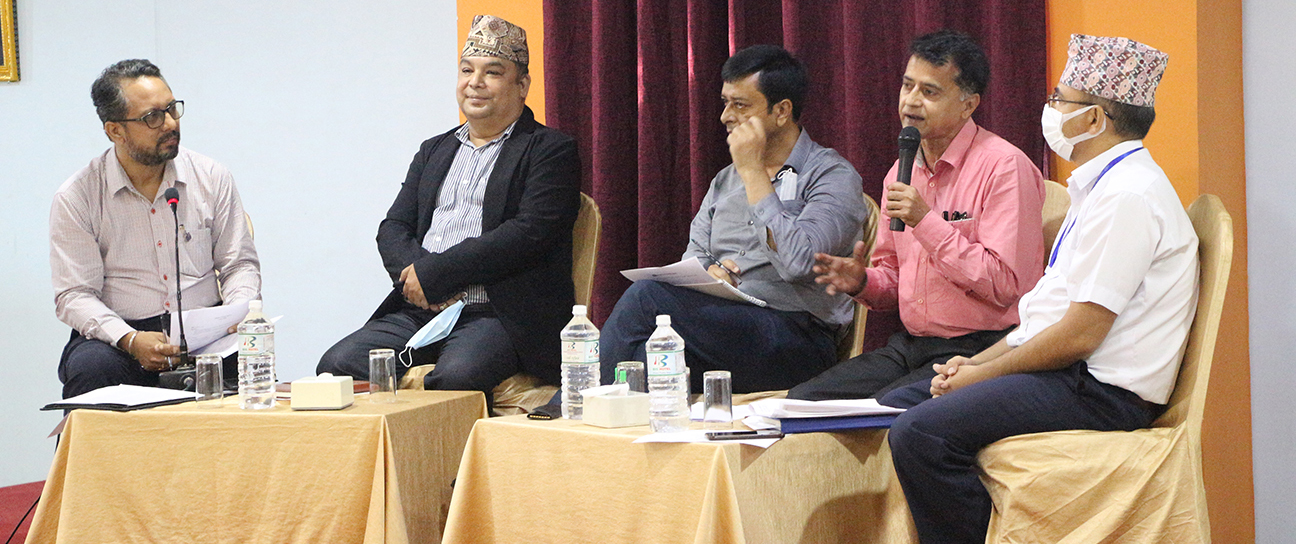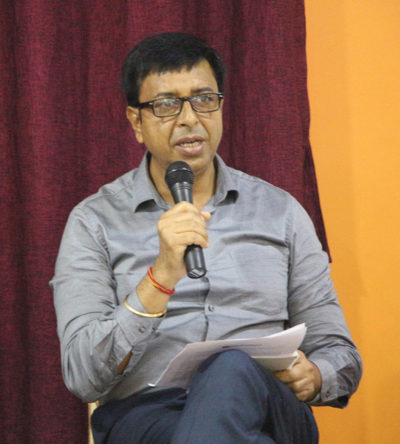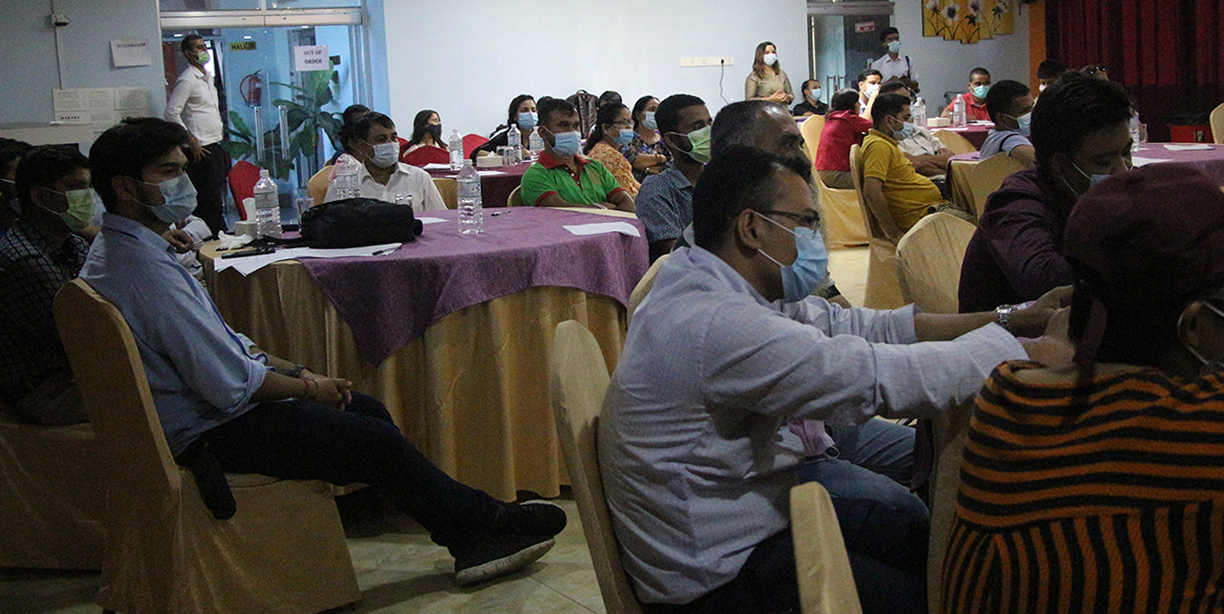
Five Things to Consider for public-private collaborations at the Sub-national level
Written by: Pratiksha Gajurel
To understand public private collaboration at the sub national level, its challenges, and opportunities, the Accountability Lab team conducted a Public-Private Dialogue (PPD) with concerned stakeholders including government, private, Civil Societies, and young entrepreneurs, trade unions to gain their insights in Biratnagar Municipality – the capital city of Province 1. An open dialogue between 54 participants was conducted on October 1, 2021. One of the major reflections from the interaction was that federalism and provincial practice have been our first step to development. But first, the province needs to understand how it can ensure optimum mobility of its resources, see areas to connect resources, and identify its comparative advantage. The federal government is still withholding power while the provincial government is in confusion. Local-level has been exercising its power more compared to the province. Many acts are made at the province level, but their implementation is still lacking. There is also a clear lack of coordination between the provincial and local governments, with challenges lying in wanting to hold more authority and gain more taxes. This dynamic has in turn affected public-private collaborations at the sub-national level.
Nepal entered the open market economy in 1990, thereafter the government attracted the private sector to collaborate in public infrastructure development. These collaborations have led to successes in some areas whereas posed challenges in others. After the new Constitution, a three-tier government structure – i.e. federal, provincial and local brought more opportunities for public and private sectors to come together at different levels. One of the most impressive aspects of collaboration was between city governments and the private sector with the framework of SANISA (Sarbajanik Niji Sajhedari-Public Private Partnership) at the local level. However, there have been significant challenges in its execution. It includes overlaps, inconsistencies, and gaps in the defined jurisdiction among these government units. One of the major challenges is faced by the provincial government as it has not received support from the center as expected to build its capacities including legal and operational mechanisms. Whereas, the local government units have treated them as a threat to their power and resources.
This blog highlights the key challenges and recommendations for public-private collaboration at the sub-national level based on the dialogue.
i. Investments are limited to certain sectors: The majority of the public-private collaborations in Nepal are considered for sectors such as aviation, road construction, education, and hydropower. However, the provincial government needs to identify the areas where they can make optimal use of the resources existing in the area. For instance, the tea and garlic industry could be the areas of comparative advantage for Province 1, but not much attention has been paid towards it.
ii. Lack of human resources at the sub-national level: Most of the skilled human resources with expertise are concentrated at the federal level due to a lack of opportunities at the sub-national level. This also limits the potential of innovative public-private partnerships. The public-private collaboration has a scope to influence and encourage youth to work for their own communities.
iii. Conflict of interest between private and public sector: The interest of the private sector lies in making profits while the interest of the public sector is to provide service. Thus, there is always a risk of conflict of interest in the PPP. Careful attention should be given to the interest of both parties when designing the project and making the agreements. In addition, the cost-benefit analysis and potential risks of crisis and disasters should also be considered. The ultimate beneficiaries of such collaboration should be citizen-centered.
 iv. Legal mechanisms for monitoring rather than facilitation: The legal framework for PPP is mostly considered as a monitoring mechanism rather than a facilitating tool. It is important to draft practical policies that reflect the context of the country. The current tendency of copying the policies from other countries won’t produce policies that resonate with the reality of Nepal. It creates complications during the execution of projects and policies.
iv. Legal mechanisms for monitoring rather than facilitation: The legal framework for PPP is mostly considered as a monitoring mechanism rather than a facilitating tool. It is important to draft practical policies that reflect the context of the country. The current tendency of copying the policies from other countries won’t produce policies that resonate with the reality of Nepal. It creates complications during the execution of projects and policies.
v. Individual Integrity is important to ensure effective public-private collaborations: One of the major challenges in public-private partnerships is the lack of Integrity of individuals in both public and private sectors. There are individuals not following due procedure, encouraging corruption, and showing a lack of commitment which creates issues such as nepotism and favoritism. These tendencies exude a lack of efficiency, poor quality work, and delay project results, which not only impact benefit-sharing but also distort trust among public and private actors. Also, there are issues related to accountability at both ends as there are no strong monitoring mechanisms in place. Thus, individual integrity is an integral part of the whole public-private collaboration which needs to be considered.
Three important steps we can take if we want to see the changes happen to tackle the above five issues:

- Risk Minimization: In order to ensure that the public-private partnerships lead to effective results, it is important to have an effective long-term plan from project kick-off to completion. It is also equally important to have mechanisms to hold both the government and private sector accountable in the process and dispute resolutions.
- Capacity building at the sub-national level: It is important to build the capacity and skillsets of both the private and public sectors at the sub-national level for effective implementation of public-private collaborations. Regular policy dialogues, research, training to public officials, investment in innovative ideas on fostering PPP, etc. are some of the examples that Municipality may consider.
- Encouraging community participation and government accountability: It is important to ensure that the community is aware and is participating in public-private collaborations. Most development works that are a result of PPPs ultimately affect the communities, positively or negatively. Therefore, it is important for citizens to be involved in these projects from the start to voice their concerns and provide feedback prior to the initiation of development. The government, in turn, should be held more accountable towards both the private sector and the citizens and develop plans and policies that work long term.





